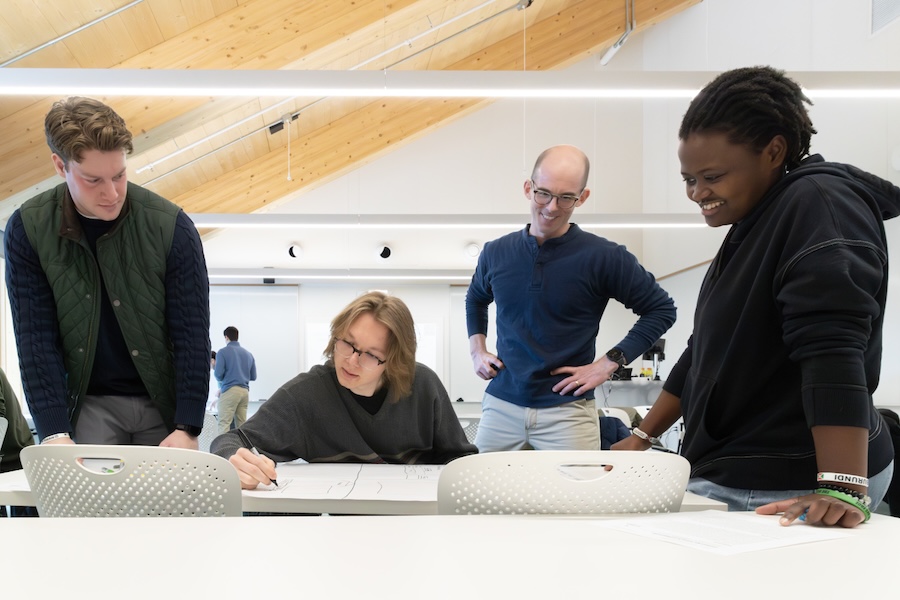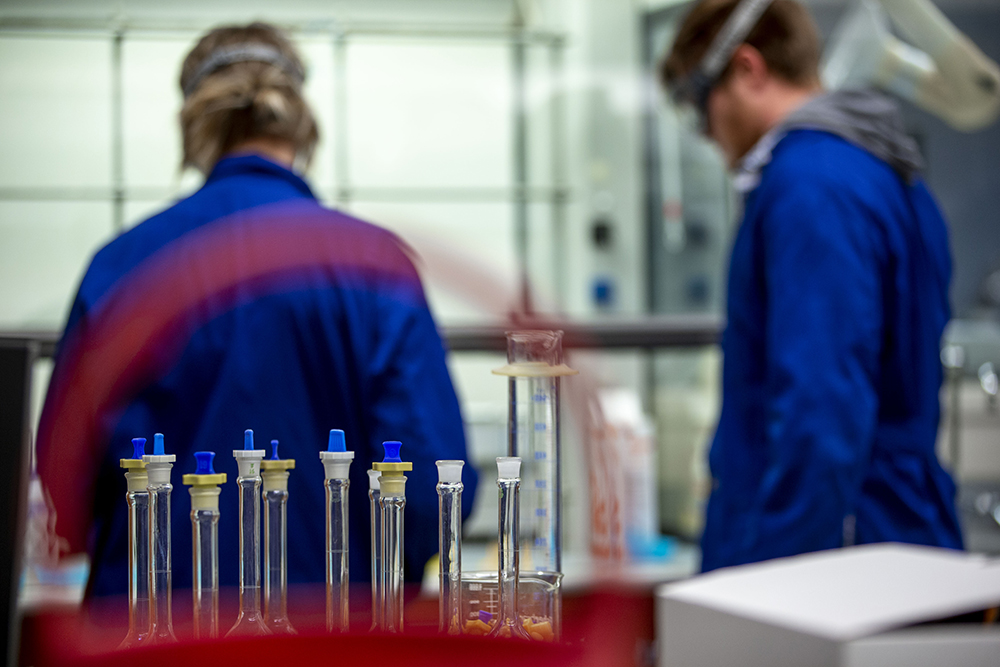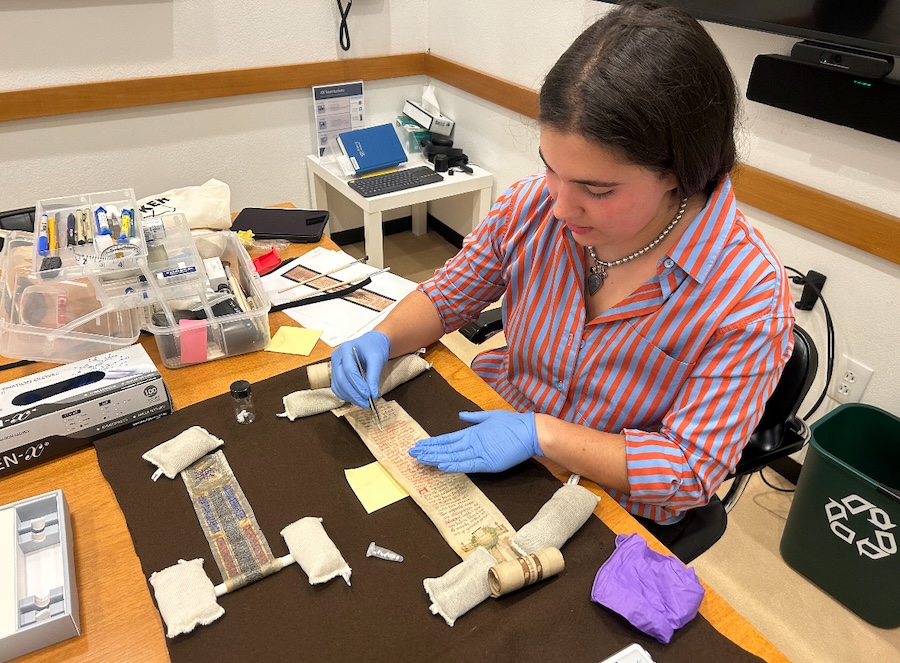Ruby Ahaiwe ’21 Focuses Her Public Health Interest on Her Community
By Rebecca Goldfine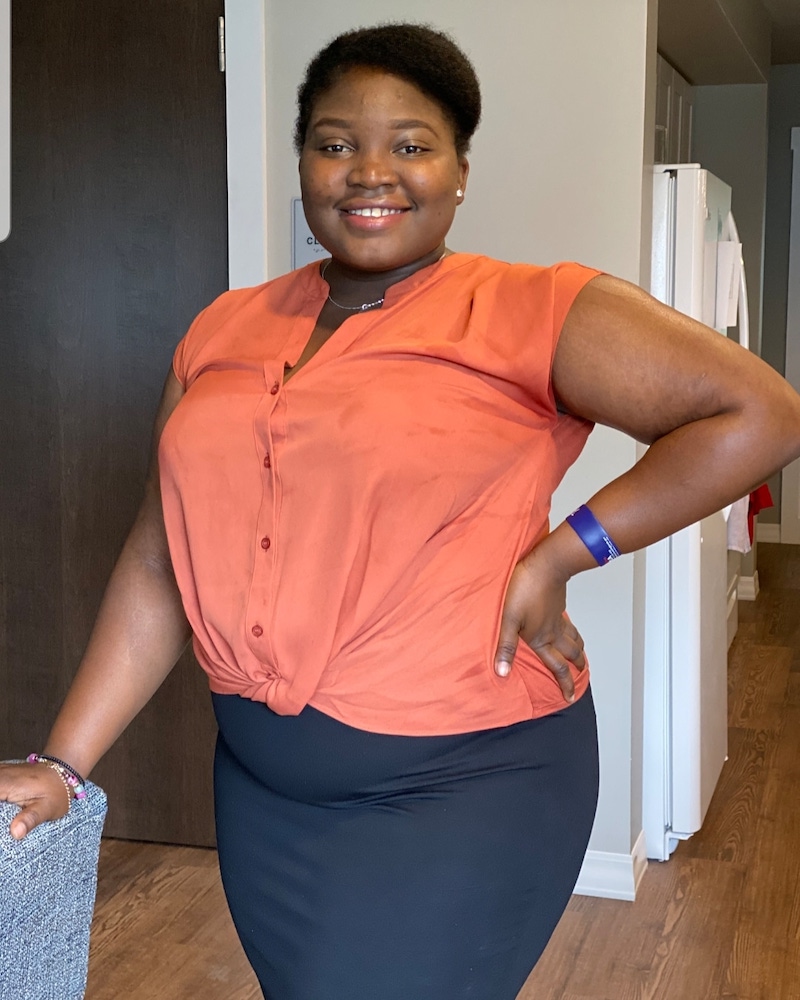
In her first year at Bowdoin, Ahaiwe joined the public health club, a group of like-minded students who invited speakers to campus and volunteered with local health nonprofits. "I saw a different side to health care that I thought was interesting and empowering," she said. Since her sophomore year, she has led the club.
This summer, Ahaiwe decided to focus her attention on a part of the world she knows well. "I looked at my own community, where my parents are from, where rural health care is minimal," she said. "I thought about some things I could do to change things—to increase health awareness and bring more attention to rural health needs."
To support her vision, Ahaiwe received a Peter Buck Student Internship Fund from Bowdoin Career Exploration and Development. She is one of more than 100 students this summer who were awarded funded internships to pursue independent projects or unpaid internships, often with nonprofits.
Though she originally planned to spend the summer in Isiala-Ngwa North, in Abia State, the pandemic compelled her to do what she could from her home base in Brunswick. If it is safe to travel by January, she will fly back during winter break to implement her plans in person.
Over the last few months, Ahaiwe has been collaborating with Chinonye Medical Hospital in Isiala-Ngwa North, a small hospital with a staff of roughly thirty that serves a population of approximately 2,000. Among her projects is organizing a free public workshop, which will be hosted by the clinic, to address four major health areas: reproductive health (covering issues such as maternal mortality and family planning); mental health; malaria, which has a high fatality rate in the region; and COVID-19.
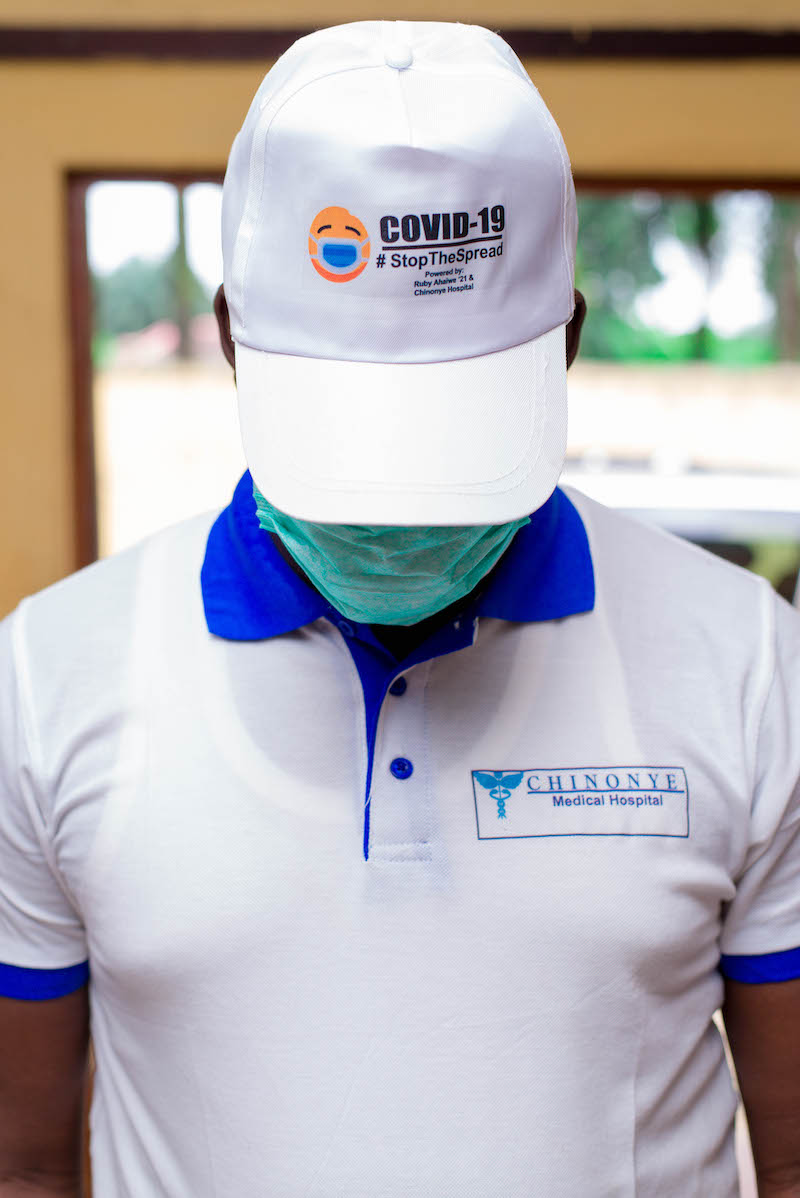
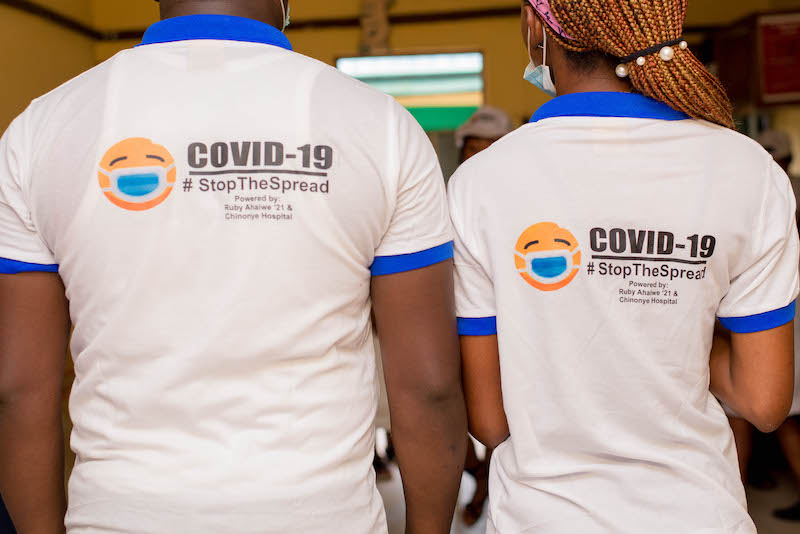
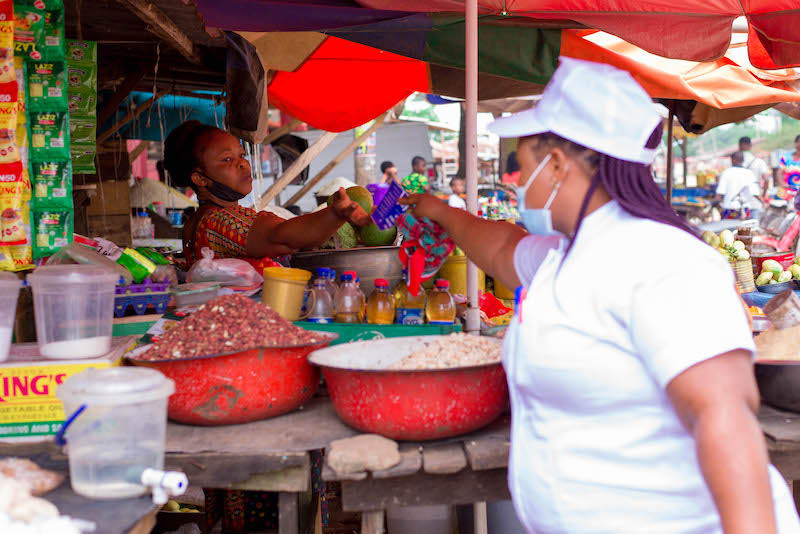
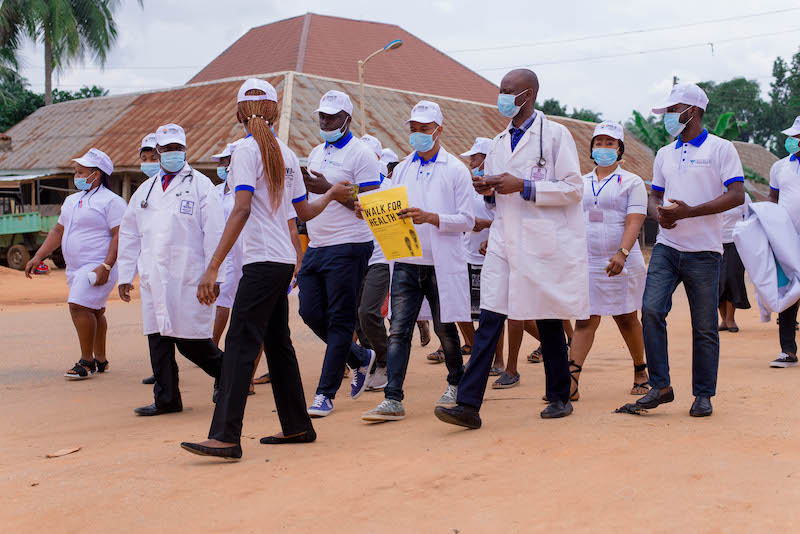
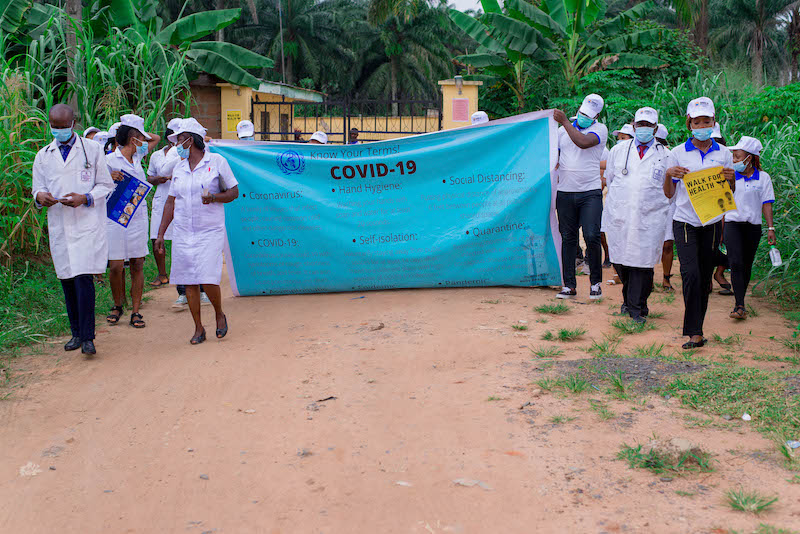
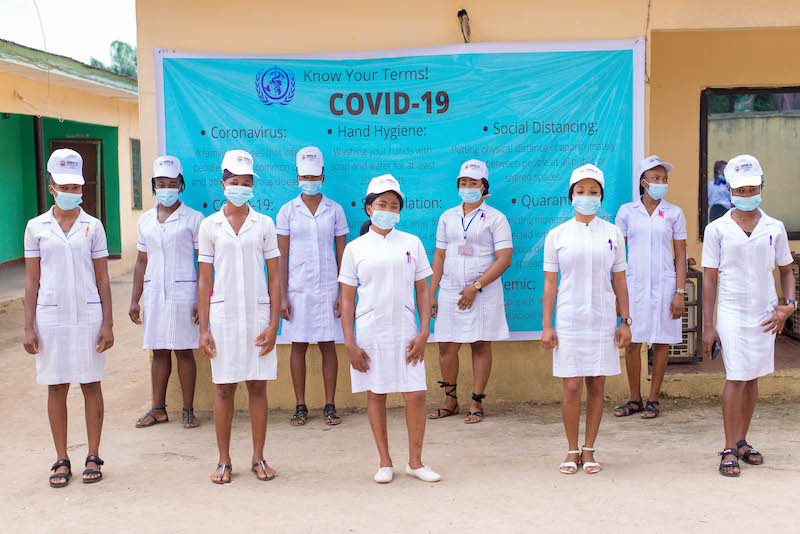
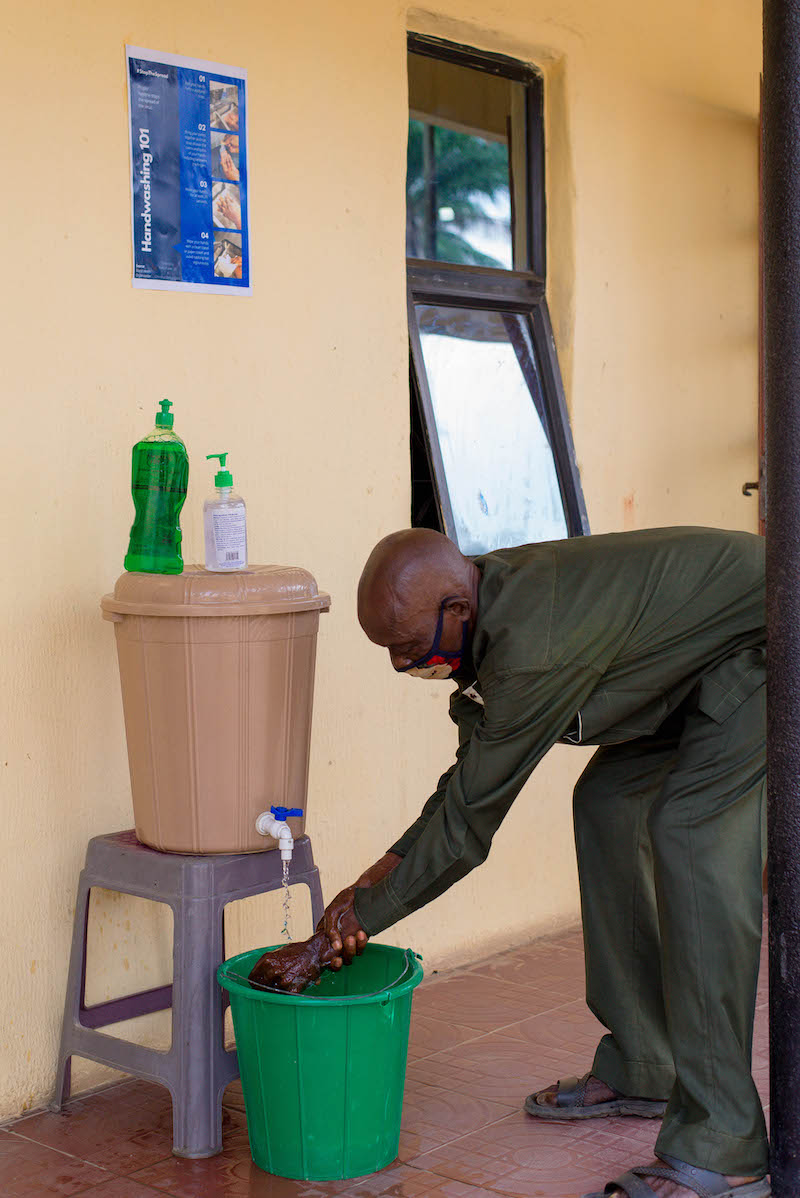
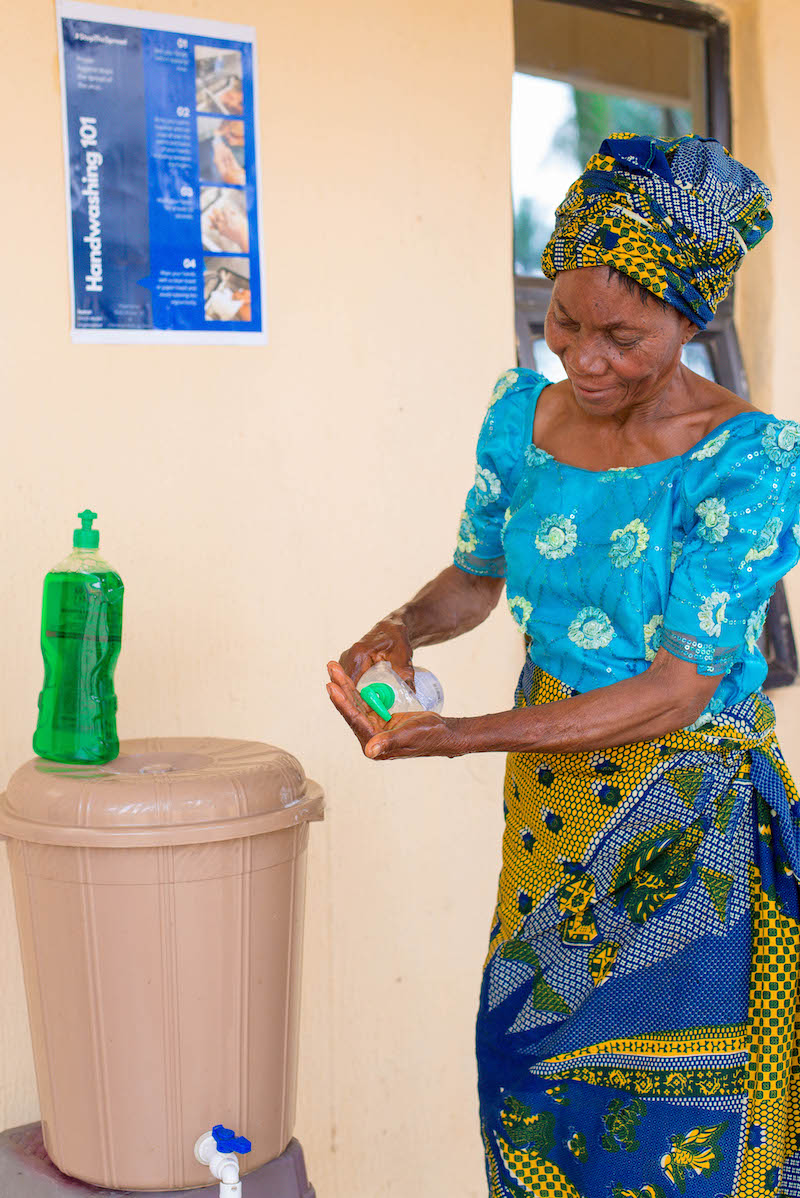
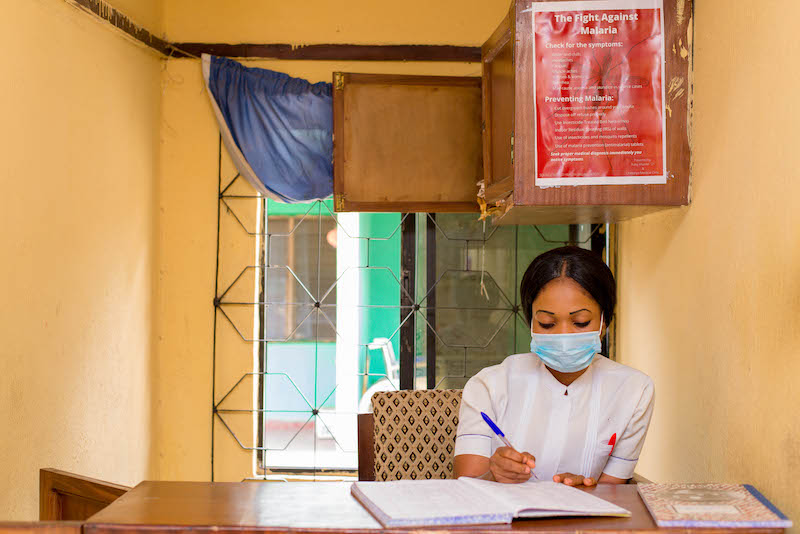









Before the pandemic, Ahaiwe was also planning a "huge walk for health," as she describes it, in which local people and health care providers walked from the hospital to the local government center to demand more resources for rural health care.
After it became clear that COVID-19 would make it impossible to fly to Nigeria, Ahaiwe established community liaisons—including friends and relatives—who could start to educate local people about the importance of taking advantage of local clinics.
"There is a heavy dependency on traditional medicine," Ahaiwe said, "which can work, but people should understand they have a wide range of options for medical care."
Her community partners have been putting up posters Ahaiwe has designed and printed that contain medical advice, such as the importance of handwashing.
The hospital also recently organized a COVID-19 awareness walk to educate community members about the seriousness of the virus. Ahaiwe donated part of her grant to buy face masks and pocket sanitizers to hand out to townspeople.
Working from afar this summer has been successful. But Ahaiwe is a bit worried about how well the community will receive her when she eventually does return to Nigeria. Though her family is from the village, they left the area when she was a child. "Some people might say, 'Who is this young girl telling us how to run our health?'"
To foster community buy-in to her health-outreach projects, Ahaiwe has contacted community leaders, including the local king. "He said it was good for the community that young people are coming back to invest in the community and that he would offer whatever support I need," Ahaiwe said.
Her public health project is the kind of work Ahaiwe wants to dedicate her lifework to. At Bowdoin, she is majoring in biochemistry and minoring in Francophone studies. After college, she plans to earn a master's degree in public health to work in the area of preventative health care, "especially in places with disparities," she said. She would love to be based in Nigeria or somewhere else in Africa, she added.
"This is my focus," she said. "I am passionate about it."
